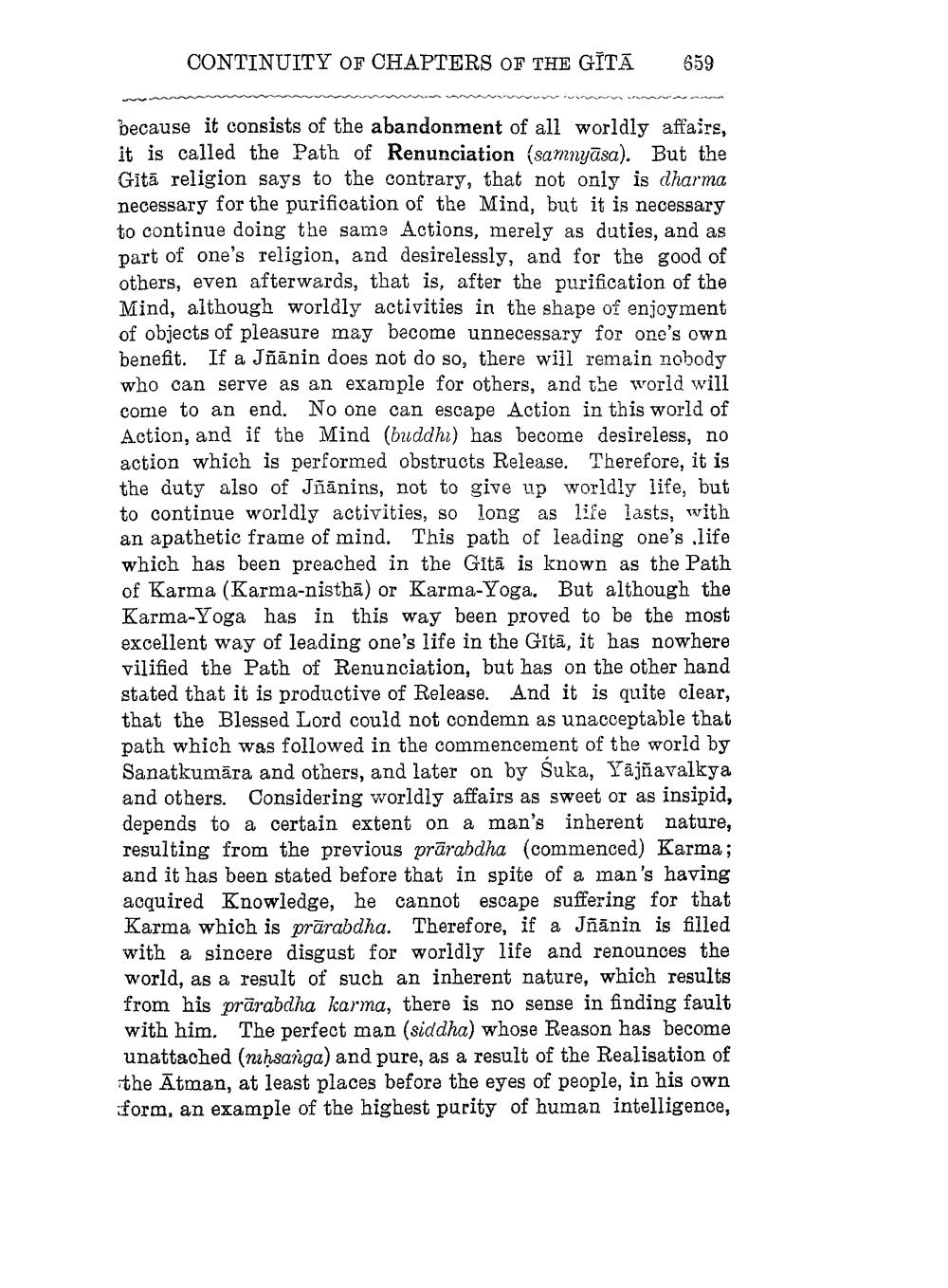________________
CONTINUITY OF CHAPTERS OF THE GITĀ
659
because it consists of the abandonment of all worldly affairs, it is called the Path of Renunciation (samnyāsa). But the Gītā religion says to the contrary, that not only is dharma necessary for the purification of the Mind, but it is necessary to continue doing the same Actions, merely as duties, and as part of one's religion, and desirelessly, and for the good of others, even afterwards, that is, after the purification of the Mind, although worldly activities in the shape of enjoyment of objects of pleasure may become unnecessary for one's own benefit. If a Jñānin does not do so, there will remain nobody who can serve as an example for others, and the world will come to an end. No one can escape Action in this world of Action, and if the Mind (buddhi) has become desireless, no action which is performed obstructs Release. Therefore, it is the duty also of Jñānins, not to give up worldly life, but to continue worldly activities, so long as life lasts, with an apathetic frame of mind. This path of leading one's life which has been preached in the Gitā is known as the Path of Karma (Karma-nisthā) or Karma-Yoga. But although the Karma-Yoga has in this way been proved to be the most excellent way of leading one's life in the Gitā, it has nowhere vilified the Path of Renunciation, but has on the other hand stated that it is productive of Release. And it is quite clear, that the Blessed Lord could not condemn as unacceptable that path which was followed in the commencement of the world by Sanatkumāra and others, and later on by Suka, Yājñavalkya and others. Considering worldly affairs as sweet or as insipid, depends to a certain extent on a man's inherent nature, resulting from the previous prārabdha (commenced) Karma; and it has been stated before that in spite of a man's having acquired Knowledge, he cannot escape suffering for that Karma which is prārabdha. Therefore, if a Jñānin is filled with a sincere disgust for worldly life and renounces the world, as a result of such an inherent nature, which results from his prārabdha karma, there is no sense in finding fault with him. The perfect man (siddha) whose Reason has become unattached (nihsanga) and pure, as a result of the Realisation of the Ātman, at least places before the eyes of people, in his own form, an example of the highest purity of human intelligence,




